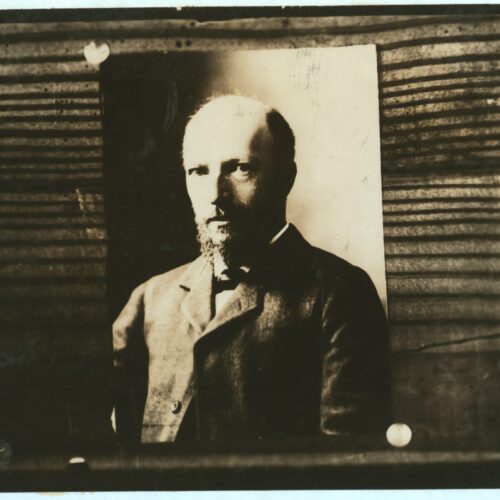

Those who never saw or heard Dr. Adler are nevertheless his heirs, though they cannot realise how creative and inspiring was his work and his teaching… His death is not a matter for grief; he had lived strenuously and wrought fruitfully; he died full of years and with his work done.
Felix Adler was the founder of the Ethical Culture movement in the US, which sought to bring people together on the basis of living a good life, without reference to supernatural ideals. This was the inspiration for the UK’s ethical societies, the 1896 union of which would become Humanists UK. Adler remained closely connected with the Union of Ethical Societies (later the Ethical Union) in the UK, including through the First Universal Races Congress, the First International Moral Education Congress, and as President of the Ethical Union.
Felix Adler died in April 1933 and the below tribute, written by politician and humanist Harry Snell, appeared in the Ethical movement’s newspaper, The Ethical Societies’ Chronicle, in October of that year.
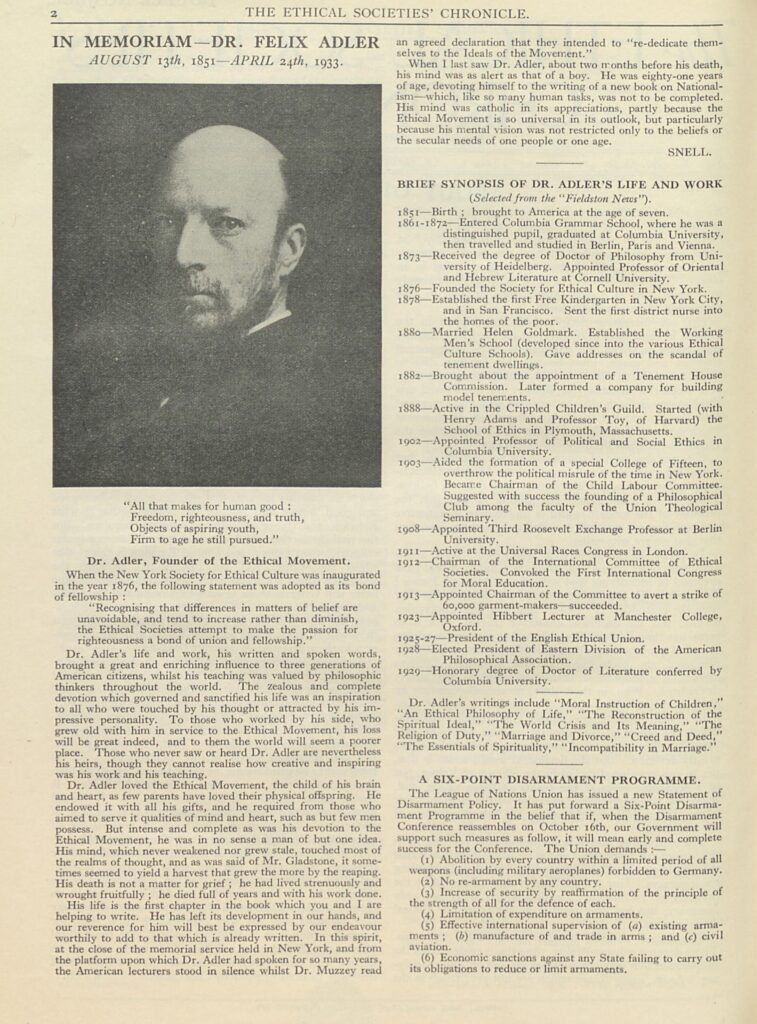
All that makes for human good:
Freedom, righteousness, and truth,
Objects of aspiring youth,
Firm to age he still pursued.
Dr. Adler, Founder of the Ethical Movement
When the New York Society for Ethical Culture was inaugurated in the year 1876, the following statement was adopted as its bond of fellowship:
Recognising that differences in matters of belief are unavoidable, and tend to increase rather than diminish, the Ethical Societies attempt to make the passion for righteousness a bond of union and fellowship.
Dr. Adler’s life and work, his written and spoken words, brought a great and enriching influence to three generations of American citizens, whilst his teaching was valued by philosophic thinkers throughout the world. The zealous and complete devotion which governed and sanctified his life was an inspiration to all who were touched by his thought or attracted by his impressive personality. To those who worked by his side, who grew old with him in service to the Ethical Movement, his loss will be great indeed, and to them the world will seem a poorer place. Those who never saw or heard Dr. Adler are nevertheless his heirs, though they cannot realise how creative and inspiring was his work and his teaching.
Dr. Adler loved the Ethical Movement… But intense and complete as was his devotion to the Ethical Movement, he was in no sense a man of but one idea.
Dr. Adler loved the Ethical Movement, the child of his brain and heart, as few parents have loved their physical offspring. He endowed it with all his gifts, and he required from those who aimed to serve it qualities of mind and heart, such as but few men possess. But intense and complete as was his devotion to the Ethical Movement, he was in no sense a man of but one idea. His mind, which never weakened nor grew stale, touched most of the realms of thought, and as was said of Mr. Gladstone, it sometimes seemed to yield a harvest that grew the more by the reaping. His death is not a matter for grief; he had lived strenuously and wrought fruitfully; he died full of years and with his work done.
His life is the first chapter in the book which you and I are helping to write. He has left its development in our hands, and our reverence for him will best be expressed by our endeavour worthily to add to that which is already written. In this spirit, at the close of the memorial service held in New York, and from the platform upon which Dr. Adler had spoken for so many years, the American lecturers stood in silence whilst Dr. Muzzey read an agreed declaration that they intended to “re-dedicate themselves to the Ideals of the Movement.”
His life is the first chapter in the book which you and I are helping to write. He has left its development in our hands, and our reverence for him will best be expressed by our endeavour worthily to add to that which is already written.
When I last saw Dr. Adler, about two months before his death, his mind was as alert as that of a boy. He was eighty-one years of age, devoting himself to the writing of a new book on Nationalism—which, like so many human tasks, was not to be completed. His mind was catholic in its appreciations, partly because the Ethical Movement is so universal in its outlook, but particularly because his mental vision was not restricted only to the beliefs or the secular needs of one people or one age.
[HARRY] SNELL.
BRIEF SYNOPSIS OF DR. ADLER’S LIFE AND WORK
(Selected from the “Fieldston News”).
1851—Birth; brought to America at the age of seven.
1861-1872—Entered Columbia Grammar School, where he was a distinguished pupil, graduated at Columbia University, then travelled and studied in Berlin, Paris and Vienna.
1873—Received the degree of Doctor of Philosophy from University of Heidelberg. Appointed Professor of Oriental and Hebrew Literature at Cornell University.
1876—Founded the Society for Ethical Culture in New York.
1878—Established the first Free Kindergarten in New York City, and in San Francisco. Sent the first district nurse into the homes of the poor.
1880—Married Helen Goldmark. Established the Working Men’s School (developed since into the various Ethical Culture Schools). Gave addresses on the scandal of tenement dwellings.
1882—Brought about the appointment of a Tenement House Commission. Later formed a company for building model tenements.
1888—Active in the Crippled Children’s Guild. Started (with Henry Adams and Professor Toy, of Harvard) the School of Ethics in Plymouth, Massachusetts.
1902—Appointed Professor of Political and Social Ethics in Columbia University.
1903—Aided the formation of a special College of Fifteen, to overthrow the political misrule of the time in New York. Became Chairman of the Child Labour Committee. Suggested with success the founding of a Philosophical Club among the faculty of the Union Theological Seminary.
1908—Appointed Third Roosevelt Exchange Professor at Berlin University.
1911—Active at the Universal Races Congress in London.
1912—Chairman of the International Committee of Ethical Societies. Convoked the First International Congress for Moral Education.
1913—Appointed Chairman of the Committee to avert a strike of 60,000 garment-makers—succeeded.
1923—Appointed Hibbert Lecturer at Manchester College, Oxford.
1925-27—President of the English Ethical Union.
1928—Elected President of Eastern Division of the American Philosophical Association.
1929—Honorary degree of Doctor of Literature conferred by Columbia University.
Dr. Adler’s writings include “Moral Instruction of Children,” “An Ethical Philosophy of Life,” “The Reconstruction of the Spiritual Ideal,” “’The World Crisis and Its Meaning,” “The Religion of Duty,” “Marriage and Divorce,” “Creed and Deed,” “The Essentials of Spirituality,” “Incompatibility in Marriage.”
Main image: Dr. Felix Adler, Chairman, National Child Labor Committee by Lewis Hine, 1913. Library of Congress
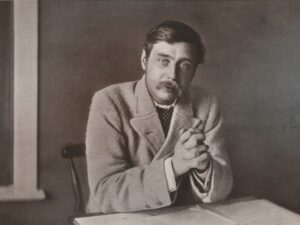
More science is needed, more interchange and more co-ordination. Act to that end. This is my philosophy of action; this […]
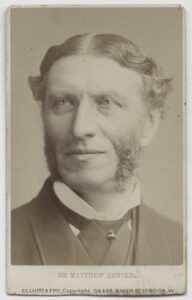
Hath man no second life? Pitch this one high! Sits there no judge in Heaven our sin to see? More […]
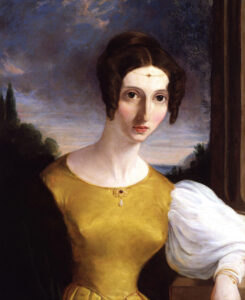
That an institution or a practice is customary is no presumption of its goodness. Harriet Taylor Mill Harriet Taylor Mill […]
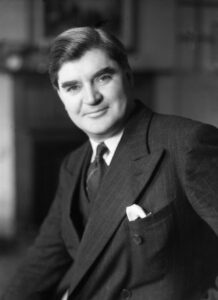
He was a great humanist whose religion lay in loving his fellow men and trying to serve them. These are […]